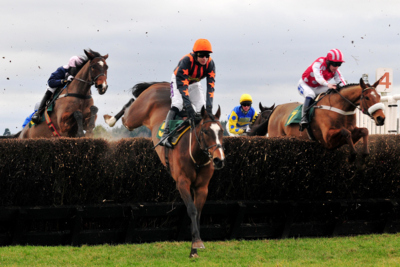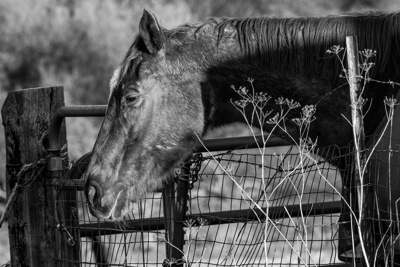
There is a certain mount of chaos to the Grand National – that’s why the famous old race is so beloved by spectators and punters watching on from the sofa.
And that air of unpredictability hardly helps us as we search through the racecard looking for that gold nugget.
But there are a number of pointers and trends that you should be looking out for if you want to take a more analytical approach to picking out your Grand National flutters; if you’d rather back a horse because the jockey is wearing your favourite colour, or the horse shares a name with a beloved great aunt, go for it!
Otherwise, here are some theories to consider:
Age is (Not) Just a Number

In many walks of life you will hear disgruntled ‘seniors’ saying ‘this is a young man’s game’ or something similar, but in the Grand National advanced age is seen as a good thing – to an extent, anyway.
Every single winner of this race since 1940 has been aged eight or over; the last time a seven-year-old triumphed as Bogskar more than 70 years ago!
It’s your classic stamina over speed argument, and why older horses tend to thrive at the National – especially when conditions are soft and sluggish.
There is an upper limit, however. Since 1995, there has been just one winner aged 12 or over – Amberleigh House in 2004, so the key is to only pick horses aged 8-11.
The mean age of a winner in the past decade is 9.60.
A Weighty Issue

The Grand National is, quite probably, the most famous long distance handicap race on the planet, and while it is nice to pick out horses with fun names or who will be wearing our lucky number, weight is a key differentiator between a potential winner and otherwise.
Since the turn of the millennium, most winners of the National have fit into the 10-06 to 11-01 band, with a couple of exceptions.
Carrying too much weight is an obvious handicap, for want of a better word, while the lighter horses will struggle to power their way through the stodgy Aintree turf.
You can see a full list of the Grand National 2018 weights here.
Experience is Key
There’s nothing better in horse racing than a proven performer; okay, so occasionally brilliant ‘novices’ fly under the radar and achieve something magnificent, but otherwise this is a sport where usually punters can reflect on the fact they should have seen a specific result coming.
So we need to know that our Grand National selections, a) have plenty of experience over fences, and b) can handle the three-mile distance.
You can use the likes of the Racing Post and Sky Sports Racing to view a potted history of a horse’s previous activities, and of course loading up instructive race results – things like the Gold Cup and Stayers’ Hurdle at Cheltenham, and the Welsh, Scottish and Irish Grand Nationals – are always helpful.
Rest and Relaxation

There is a fine line between being underworked, overworked and peaking perfectly in time for the Grand National.
Favour horses that have run in the past couple of months – even those who competed at the Cheltenham Festival three weeks ago need not be eliminated, with may recent winners such as Many Clouds, Pineau de Re and Don’t Push It competing for honours at the festival.
On the other hand, you don’t want to pick a horse that has been put through the ringer too much in that current campaign.
The Price is Right
Bad horses don’t win the Grand National: that’s a general rule of thumb that punters can abide by.
There have been long-priced winners in recent times – punters with decent medium-term memories may recall Auroras Encore (66/1) in 2013 and Mon Mome (100/1) in 2009 – but typically the National champion comes from the top half of the betting market.
Of the 18 winners since the start of the millennium, 16 were priced at 33/1 or shorter with 10 at prices of 20/1 or lower. While the perception of the Grand National as an open race tends to hold weight, it is still the classier horses that tend to have their way.
But Ignore the Favourite?!
Of the last 18 Grand National renewals, just three have been won by an outright or joint favourite.
In a race of this testing nature, it is perhaps wise to sidestep the horse deemed the best in the field and try your luck elsewhere.